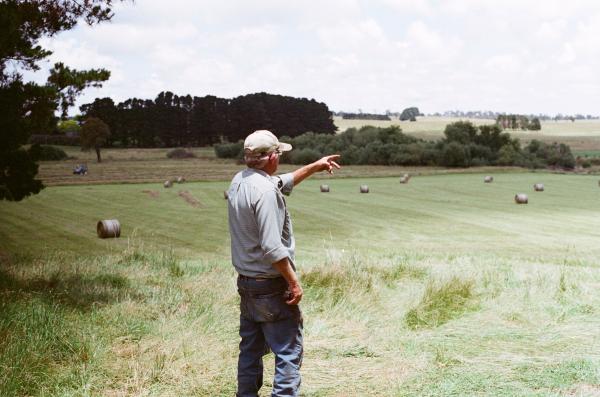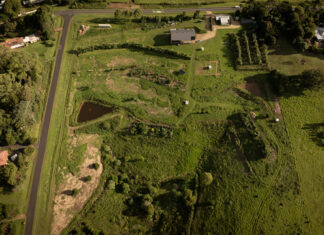Farmers in six different trial regions have the chance to diversify their farm income and improve their drought resilience as part of a new Australian Government trial launched on Friday.
Speaking from Bunya Grove Produce in Amamoor south of Gympie, Minister for Agriculture David Littleproud said the Carbon+Biodiversity pilot, being delivered under the government’s Agricultural Stewardship Package, will see farmers being paid for biodiversity benefits of mixed-species tree plantings as part of their carbon projects.
“Farmers have been doing biodiversity and carbon work for decades and it’s time they were paid for it,“ he said.
“They can already participate in carbon markets under the Emissions Reduction Fund, but today we will start trialling a new approach that will also see them paid for the biodiversity benefits they deliver.
“We don’t want to lock up land – we want this work to go hand in hand with a productive farming enterprise. Our farmers produce some of the best food and fibre in the world and we want to reward them for delivering positive outcomes for the community, while also improving the financial sustainability of their own farm business.
“I don’t care who believes in climate change or how much, because I know farmers believe in economics and numbers. Farmers can be part of the solution and this pilot will prove that.”
As part of the pilot, the Australian National University has created the processes and protocols that measure and reward farmers for undertaking the plantings, delivering a system which will be respected by international markets.
ANU Professor Andrew Macintosh said planting blocks or shelterbelts of 20 metres or wider using one of the lists of native plant species created for this pilot would see farmers paid for both biodiversity and carbon gains.
“The system delivers rewards for farmers that are achieving measurable biodiversity gains,” Professor Macintosh said.
“If planting areas include mature trees, are near watercourses, or provide good habitat for threatened species, this gives the project a higher biodiversity benefit score. If a bushfire comes through and the trees do not naturally regenerate, the farmer is expected to replant but does not need to pay any money back.”
Federal Member for Wide Bay and Deputy Speaker of the House of Representatives Llew O’Brien said the pilot program had potential to deliver a win-win solution for farmers and the land.
“We know that Wide Bay farmers like Bunya Grove Produce’s Mick and Kylie Carr love the land, they look after it, and they understand it better than anyone,” Mr O’Brien said.
“This program offers a unique opportunity to support the work they are already doing, and build upon it, in a way that will benefit biodiversity, the environment and future generations.”
Cattle Council CEO Travis Tobin said nearly 80 per cent of Australia’s agricultural land is cattle country, and beef producers have indicated biodiversity is a priority for them.
“Cattle Council supports opportunities to diversify farm income while improving on-farm biodiversity.
“This pilot is for producers that want to be rewarded for their environmental work and it respects the producer’s right to choose.”








